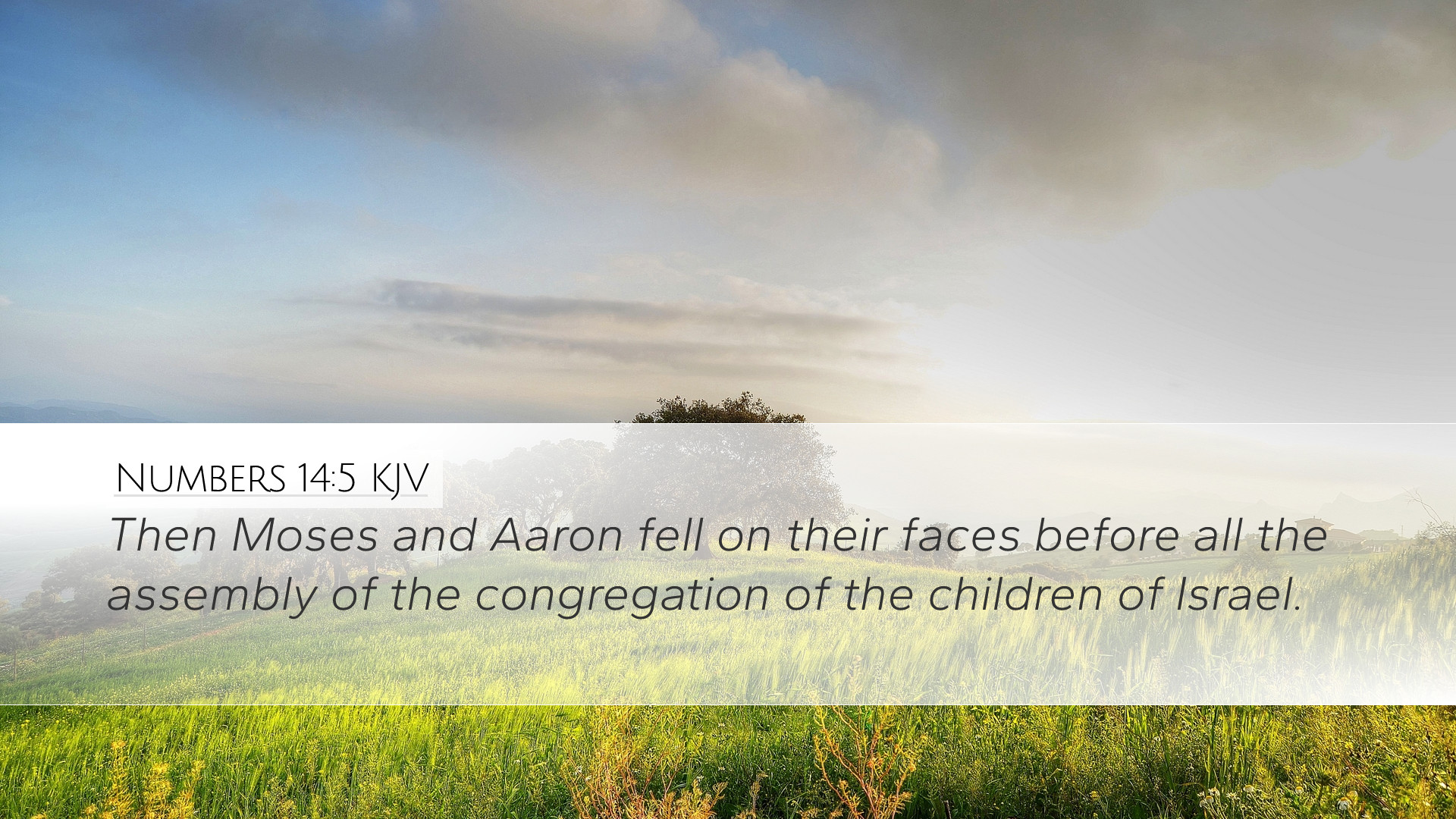Commentary on Numbers 14:5
Text of Numbers 14:5: "Then Moses and Aaron fell on their faces before all the assembly of the congregation of the children of Israel."
Contextual Background
This verse occurs within a pivotal moment in the history of Israel as they stood on the brink of entering the Promised Land. After the report of the spies, fear and rebellion surged among the Israelites. Their discontent prompted them to consider returning to Egypt, showing a lack of faith in God's promises. This sets the stage for Moses and Aaron's profound act of humility and intercession.
Moses and Aaron's Response
Moses and Aaron's actions serve as a model of leadership and spiritual authority. In a moment of crisis, they exhibit profound humility by falling on their faces. This signifies their desperation for God's intervention and their deep concern for the people they lead.
Insights from Commentators
- Matthew Henry: Henry emphasizes that this act of falling on their faces exemplifies not just reverence, but acute sorrow. They recognized the profound consequences of the people's sin and sought to intercede with God.
- Albert Barnes: Barnes points out that Moses and Aaron's prostration was a plea for mercy. Their submission mirrors the biblical understanding of leaders bearing the weight of their community's sins before God.
- Adam Clarke: Clarke highlights that their act was also a demonstration of their loyalty to God’s glory. By falling down, they were showing that they had no confidence in the people’s decision but were fully reliant on divine intervention.
Theological Implications
The response of Moses and Aaron offers rich theological insights. First, it underscores the importance of humility in spiritual leadership. By physically positioning themselves low before God, they model the necessary attitude of asking for God's grace.
Humility and Intercession
In this pivotal scene, the act of humility leads to an intercessory role for Moses, which is crucial in the narrative. Their prostration symbolizes not only their submission but also a crucial moment of intercession on behalf of the people. This indicates that true leadership, especially in the spiritual realm, involves a willingness to bear the burden of others before God.
Lessons for Pastors and Leaders
From this scene in Numbers 14:5, several lessons can be gleaned for pastors and church leaders today.
- The Weight of Responsibility: Leaders must grasp the gravity of their role in the spiritual well-being of their congregation.
- Physical Prostration as Humility: While literal falling on one’s face might not always be practical, the heart posture of humility and dependence on God must be maintained.
- Intercession as a Core Duty: Leaders are called to intercede for their congregations, to pray fervently, and to act as mediators of God’s grace in their communities.
Exegesis and Application
The narrative of the people’s rebellion against God leads to deeper themes within this particular verse. The refusal to trust God's promises can lead to disastrous consequences, as seen throughout the history of Israel. As Moses and Aaron intercede, they embody the hope that even amidst rebellion, there is the potential for repentance and reconciliation.
Application for Students and Scholars
For students and scholars, Numbers 14:5 raises questions about the nature of faith and leadership. The contrast between the leaders’ attitude and that of the congregation opens up discussions on responsibility, collective sin, and divine grace.
Further Considerations:
- The Role of Leadership: What does this teach us about the moral and spiritual obligations of leaders?
- Community Dynamics: How does the response of Moses and Aaron reflect the challenges of leading a community facing fear and rebellion?
- God's Faithfulness: How does this narrative remind us of God's constant call to repentance and His readiness to forgive?
Conclusion
In summary, Numbers 14:5 is a profound illustration of leadership characterized by humility and intercession. For pastors, students, theologians, and scholars, it serves as a reminder of the critical relationship between leadership and reliance on God. The act of falling on one’s face before God should inspire deep reflection on the attitudes and responsibilities that accompany spiritual leadership today.


